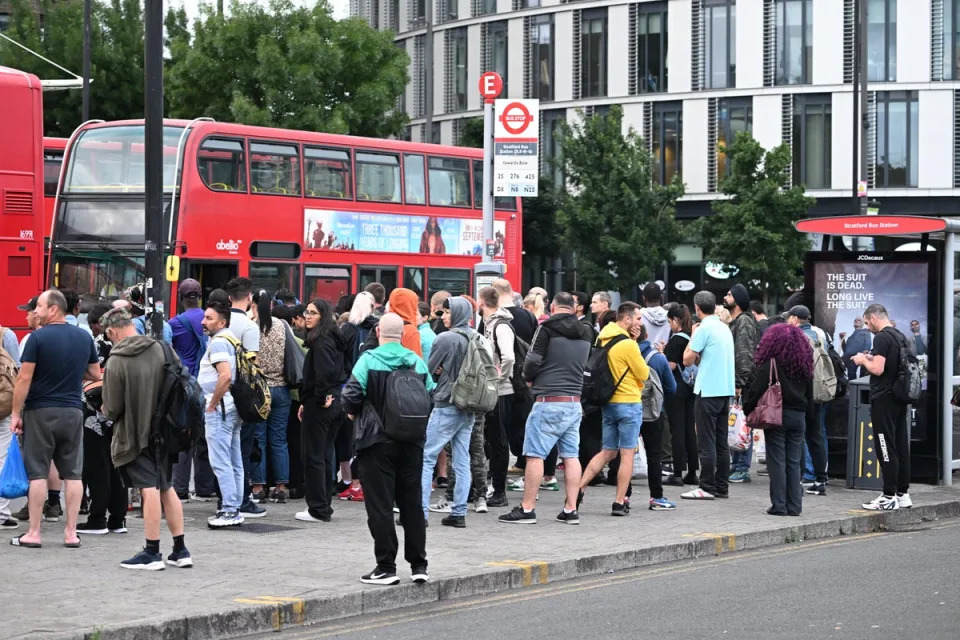SCOTLAND
Mike Dailly: We’re going backwards when it comes to homelessnessMike Dailly
Sun, 5 February 2023

SCOTLAND’S latest homelessness figures reveal 9130 children were living in temporary homeless accommodation – up 6% from the year before.
Overall, there were 14,458 households living in temporary accommodation across the country.
We seem to be going backwards; there were almost 29,000 open homeless cases on September 30 last year; the highest since records were introduced in 2002.
If that wasn’t bad enough, last week delivered a judgment from Scotland’s highest civil court – the Inner House of the Court of Session – that reversed an important win for homeless people living in temporary accommodation.
Last April, the court ruled that local authorities were under an absolute legal duty to provide suitable temporary accommodation for homeless households in Scotland, that met the needs of disabled children. I had appeared on behalf of the petitioner.
The primary issue in X v. Glasgow City Council [2022] CSOH 35 was whether a local authority was under an absolute legal obligation to provide accommodation suitable for occupation by a homeless household, “taking into account the needs of a household”, in terms of the 2014 Unsuitable Accommodation Order.
The petitioner said it was. The respondent’s then argument was it wasn’t because it had a discretion to balance the needs of a household against other demands on its limited financial resources.
When the court ruled in favour of the petitioner this was fantastic news for thousands of adults and children in temporary homes across Scotland.
Many families are left in temporary accommodation for years due to a lack of suitably sized permanent housing.
It was clear from this case that the needs of such families and especially those with disabled children could not be ignored.
Last week, in Glasgow City Council v. X [2023] CSIH 7, the Second Division interpreted the 2014 Order as if the word “general” appeared before the word “needs” in article 4(b) of the 2014 Order.
The effect of this approach is quite profound. It means there’s no absolute duty to meet the needs of a household as assessed by a local authority when it comes to temporary homeless accommodation.
In short, a more general balancing exercise can be undertaken where needs aren’t met; with the implication that a household can be placed in unsuitable temporary accommodation for an indefinite period of time.
This seems peculiar given the Scottish Parliament expressly gave homeless persons greater rights by amending the 2014 Order in 2020 and 2021.
One might ask has the Inner House read down the 2014 Order?
Has the court applied an ordinary interpretation to the words in the 2014 Order? In general, the courts won’t read words into statute law unless a provision is ambiguous or an ordinary interpretation would lead to absurdity.
The upshot of the case of X is that interim accommodation is now treated as entirely different to permanent accommodation when it comes to suitability.
Temporary accommodation was always distinct – you can be moved from house to house at the discretion of the council – and there’s no security of tenure, unlike with a permanent offer of accommodation under homelessness law.
Because of the court’s interpretation, you get the odd conclusion that you can be placed in unsuitable temporary accommodation indefinitely, but might have a remedy if you were placed there too long.
I’ve struggled to discern where such a concept comes from in the 2014 Order or 1987 Housing (Scotland) Act.
Arguably, it’s a legal innovation that arises from an unusual interpretation of the 2014 Order.
We then have a conflation of the 2021 changes to Scots law with older English cases that pertain to entirely different aspects of English homelessness law.
The petitioner’s 2010 Equality Act case appears to have been rejected upon the basis one or more children could have slept in the living room – which would mean there was no living room.
The court’s interpretation of the 2014 Order sits uncomfortably with the Scottish Government’s statutory guidance on the 2014 Order, which was published in 2021.
Paragraph 3.4 of the guidance provides: “In assessing whether accommodation is unsuitable for a homeless household, a local authority must take account of the needs of each member of the household, including any protected characteristics, equality considerations or vulnerabilities around psychological informed service delivery and childhood trauma”.
Why does this matter? Because people end up in temporary homes for very long periods of time.
1075 households with children whose case was closed in the year ending March 31, 2022 spent more than one year in temporary accommodation; 240 were in Glasgow.
2640 households without children whose case was closed in the year ending March 31, 2022 spent more than one year in temporary accommodation; 410 were in Glasgow.
Appeal to the UK Supreme Court (UKSC) is possible if permission is granted by the Inner House or UKSC.





























